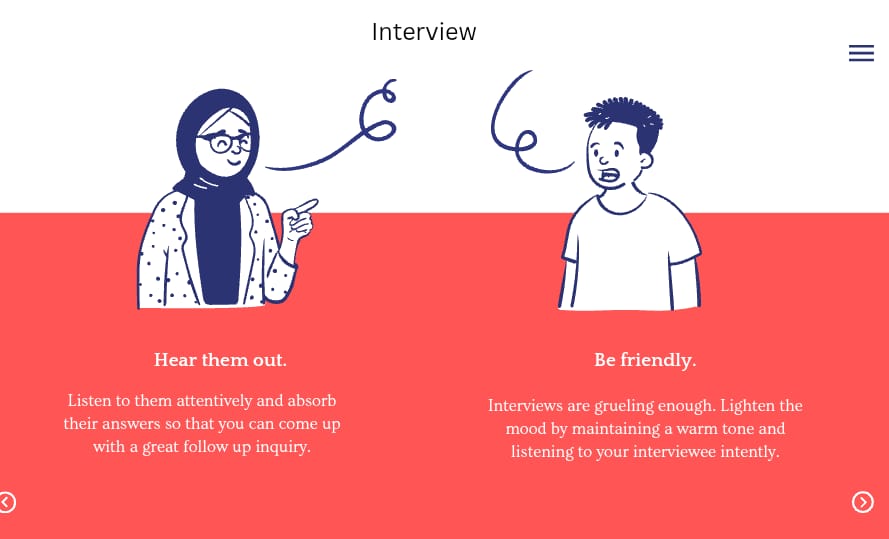Introduction
Do you have a remote job interview coming up but don’t know how to prepare?
Best Job Tool has come up with the perfect solution for you. With the help of this article from Best Job Tool, you’ll be able to prepare for your remote job interview with ease.
This article covers everything from A to Z. If you read each point carefully and apply it, you’ll definitely be 100% ready for your interview.
You can read the summary here.
What is a Remote Job?
Remote jobs are basically those jobs in which you don’t have to go to the office daily. You can work from home or anywhere where the internet is available. In remote jobs, employees and employers connect using online tools such as Zoom Meetings, Slack Chat, Google Meet, and Email. It makes the flow of work smooth without physically being present in the office.
Remote jobs offer flexible options in which you can work according to your convenience. These jobs are very popular in today’s digital era because they save time, remove the problem of commuting, and make it easier to achieve a work-life balance.
Remote jobs are becoming popular every day because they create a win-win situation for both employees and the company. Remote jobs provide flexibility to employees, as they can work from anywhere, according to their convenience, they save on the cost of travel and commute, and can spend more time with their family. Also, it is beneficial for companies as well because companies do not have to spend money on office space, electricity, and infrastructure. Besides, these companies also get the chance to hire global talent without geographical boundaries.
After COVID-19, people have gained experience from work-from-home and they realised that working from home does not reduce productivity instantly; sometimes the productivity of employees doubles. That’s why remote jobs are not only a trend, but it is a long-term career option.
Benefits of a Remote Job
- Flexibility in Schedule –
The biggest advantage of remote work is that you can decide the timing of your work. If you are an early riser, then you can finish your work in the early morning, and if you are a night owl, then you can work at night. With this flexibility, you can work according to your energy levels and productivity. Plus, personal errands and emergencies also become easy to handle without formally taking leave.
- No Commute –
There is no office commute, which means you can save time and money on fuel. Besides these, the stress of traffic and daily travel also decreases. You can invest this extra time in your productive work or in your personal life. Plus, your health also gets better because you don’t have to go through pollution and travel fatigue.
- Better Work-Life Balance –
There are unnecessary meetings, gossip, or interruptions in the office environment. In remote work you set your workspace according to your comfort zone to increase focus. Less destruction means more efficient work. This is especially for those people who want to stay self-motivated and disciplined.
- Cost Savings –
Expenses are reduced in remote work because there is no cost of transportation, parking, lunch, coffee, or formal office wear. These savings become a good amount at the end of the month. You can also manage your budget better by staying at home.
- Location Independence –
Remote work gives you the freedom to work from the location of your choice — whether it’s your home, a café, or a scenic hill station. This is especially beneficial for people who love to travel or don’t want to be bound to a specific city. It brings variety to your lifestyle and keeps your motivation high.

Preparation for a Remote Job Interview
Remote work is no longer just a modern trend. Earlier, people used to think working from home was only for people under freelance or part-time workers. But bigger companies are also shifting those teams to remote or hybrid mode. The benefit is that you can work from your home, from your comfort zone, or from anywhere.
But getting a remote job is not that easy. Only having a good resume for a portfolio is not enough. At the time of your interview, you need to show your skills as well as show that you are a responsible, disciplined, and tech-savvy remote worker.
Here is a detailed guide to help you prepare step by step for your remote interview.
1. Research About the Company and the Role
Researching about the company is important for every interview, but it is more critical for remote jobs. Because the employer is not meeting you personally in the office. They have to trust only in your answers and in the interview.
- Firstly, you need to check the website and blog of the company. See which type of services are provided by them, their vision, and which values are important to them.
- Follow the social media pages of the company, such as LinkedIn or Twitter. Through this, you can understand their culture and communication style.
- If possible, read reviews of the company on Glassdoor or Indeed. Through this, you will get to know the company’s behaviour with remote employees.
- Read the job description line by line. Link every skill and requirement with your experience.
Tip: If the job description includes a requirement of “strong written communication,” then you should give an example of your writing skills in the interview for sure.
2. Keep the Tech and Environment Setup Perfect
Tech setup and environment make the biggest impression in a remote interview. Any glitches can leave a poor impression, and the interviewer can also feel frustrated.
- A table and a fast internet connection are a must. There should be a speed of at least 10 MBPS.
- The camera should be at eye level to feel natural. Natural light is best, but if natural light is not possible for you, then use a table lamp that gives light directly on your face.
- Use headphones to avoid distraction. You can use an external mic and do not forget to test the audio before the interview.
- Avoid messy or a distracting background. A simple wall or bookshelf is perfect. You can also use a virtual background, but it should be professional.
- Always get ready with another device and a hotspot for backup.
Tip: Check your setup 10 minutes earlier before joining the call.
3. Highlight Remote-Specific Skills
In a remote job, employers see your professional knowledge, as well as they see that you are comfortable with a remote working environment.
- Tell them how you stay productive with a lot of distractions.
- The example of meeting a deadline. Highlight if you have worked with clients in different time zones.
- The most important skills for remote teams are communication. Learn to clearly communicate about your work and progress through email, chat, and calls.
For example, “in my freelancing project with an overseas client, I use Google Calendar for scheduling, Trello for task tracking, and maintain weekly progress updates over Slack. This helped make liver work on time without needing constant check-ins”.
4. Prepare for Common Remote Interview Questions
Expect questions about tailor remote working. Here are a few and how to approach them,
- How do you handle distraction when working from home?
➡ ️ Mention and dedicate a word space to fixed rupees and productivity apps you use. - What collaboration tools are you familiar with?
➡ ️ Name specific ones, such as Zoom, MS Teams, Notion, etc. - Can you share a challenge you faced while working remotely and how you solved it?
➡ Use the star method (situation, task, action, result) to structure your answer.
Tip: practice answers out loud so you sound confident, not rehearsed.
5. Polish Virtual Presence
Body language and appearance matter a lot in online meetings.
- Look at the camera lens, not at the screen. Through this interviewer feel that you are talking directly to them.
- Sit straight, give a smile, and use gestures like nodding. It shows attentiveness.
- Keep outside professionals such as a simple shirt or top. Each part of your body should look professional because they cannot see the lower one.
- Keep water near you at the time of the call and avoid food.
6. Keep Documents and Work Samples Ready
You get an advantage in remote interviews with a cheat sheet. But you have to use them smartly.
- Keep your resume and notes open in another tab.
- Keep a link ready to your portfolio articles or work samples.
- Write a bullet point of your key achievement.
Tip: Do not read from notes, keep notes as a reminder.
7. Ask Smart Questions
An interview is always a two-way process. If you ask thoughtful questions, then the interviewer feels that you are genuinely interested. Here are some examples of questions that you can ask from the interviewer.
- How does your team stay connected while working remotely?
- What’s your approach to handling different time zones?
- How do you measure performance in this role?
- What’s your own boarding process for remote employees?
This also helps you decide if the company is a good fit for your working style.
8. Follow Up Professionally
Your work does not end with the end of the interview.
- Send a thank you email within 24 hours.
- Mention highlights of the interview to feel personal.
- Highlight your interests and skills again.
Example: “Thank you for today’s conversation. I love to know about your communication strategy. I am excited to support the goals of your team through my content strategy and collaboration skills”.
A remote job interview is your first chance to prove yourself as a strong candidate. Not only technical knowledge but also communication style, discipline, and adaptability are judged.
Every step is equally important, whether researching about the company, practicing interview answers, asking smart questions, or following up. If you take these seriously then you will leave a strong impression in your interview. A remote job interview is not just an interview; it is a test to see whether you are ready for remote work or not.
Conclusion
Preparing for a remote job interview requires more than just good answers—it’s about showing you are tech-ready, disciplined, and adaptable. By researching the company, practicing remote-friendly skills, setting up your environment, and following up professionally, you can confidently prove you’re the right fit. Preparation is your key to turning the interview into an opportunity.



